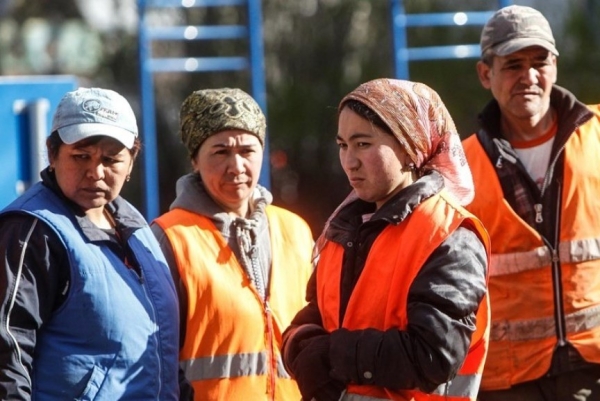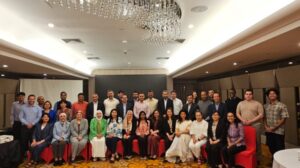
Over the first six months of this year, more than 78,700 Tajik women have traveled to other countries, primarily to Russia, seeking better employment opportunities, which is 10,700 women fewer than in the same period last year, Ms. Bunafsha Faiziddinzoda, Chairperson of the Committee for Family and Women’s Affairs under the Government of Tajikistan, told reporters in Dushanbe on August 5.
Meanwhile, the number of women, who have returned to the country over the reporting period, is 80,500, an increase of 16,500 compared to the same period last year.
Ms. Faiziddinzoda said the reduction in the number of women going for labor migration, primarily to Russia, is mainly due to the tightening of migration laws in Russia.
In recent years, the Russian government has introduced new rules and laws related to migration, making it more difficult to obtain work permits and stay in the country.
These changes include stricter document requirements, higher fines for violating migration laws, and increased control over foreign workers.
Ms. Faiziddinzoda also noted that nearly 39,300 women have contacted the Labor Agency over the same six-month period, which is 2,300 more compared to the first half of 2023. Among those who applied, 30,000 women were registered as unemployed, which is 2,200 more than the previous year. 17,000 of them have reportedly received an official unemployment status, 2,100 women more than in January-June last year.
Permanent employment has found for 19,800 women (1,000 women more compared to January-June last year), and more than 9,300 women have reportedly acquired professional skills over the reporting period. Most of the employed were women who returned to Tajikistan from labor migration. They were employed in enterprises related to sewing, baking, and other similar activities.
“Women who lack education or professional skills undergo special training to obtain a certificate and secure employment,” Ms. Faiziddinzoda added.




